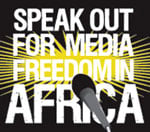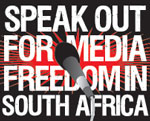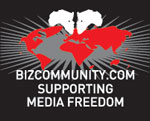Due to the lack of a strong and united political opposition, the media in Africa, at least those that are critical of government policies, becomes a powerful force called a surrogate opposition, Prof Tawana Kupe, dean of faculty of humanities at Wits University, said this week in Johannesburg.
"Weak political opposition is a common factor in Africa, and when the opposition is weak, real opposition comes from the media," Kupe, a columnist for The Daily Maverick and City Press, told delegates. He was speaking at Wits University at the two-day Regulations and Rights media conference, a continental gathering focusing on the role and responsibilities of African media.
"Look at Fred M'membe of The Post in Zambia. He has been arrested many times, more than any political opposition figure in that country."
M'membe, who attended the conference, is the editor-in-chief and MD of The Post, the only Zambian private major newspaper. "Surrogate opposition is good but it will not create a stronger opposition, which is vital to counter the new resurgence of repression currently occurring in Africa," he said.
"As Africans, we are living in an era of unstable political and economic environment characterised by a new resurgence of repression, lack of democracy consolidation, media conglomeration and fragmentation, lack of media diversity and the emergence of online media.
"African media is schizophrenic"
"African media is schizophrenic and not organic [do not engage issues]. I often ask my students 'Do we have an African media or media in Africa?' Historically, we have a transplanted media in Africa."
Kupe, originally from Zimbabwe but who partly grew up in Botswana, fired a salvo at what he called 'captured media' - TV, radio and news agencies owned and funded by the state - for vilifying the opposition and not creating space for free debate.
"Media in Africa is no longer a genuine public sphere," he said. "Look at current ministers' spokespersons and media directors. They used to be proud journalists who are now spinning more than any spinner in this world."
South Africa is one perfect case study of this shocking context of African media. There is a plethora of former journalists now working in communications departments at various government and private entities. Critics accuse them of being 'sell-outs', 'traitors' and 'deserters' who capitulated to the 'enemy's ranks' for financial glory.
Following paradigm shifts required
Kupe said the following paradigm shifts are required to counter the effects of these media 'viruses'.
"We need to develop an African character and identity - organic media. We also need to re-orient the role of the opposition and drive the media away from its current role of surrogate political opposition," he said.
Furthermore, he suggested the transformation of state-owned media into public media, and the creation of solidarity networks of the media as an institution that acts more on behalf of the ordinary citizen and not for the powerful.
"We need to create independent regulatory mechanisms which nurture and promote media ethics and accountability to citizens. It is difficult to be self-reflective when you have power because you will start to be defensive - that is why you need a mix of regulatory and self-regulatory mechanisms to get it right."
He also lashed out at 'polarised' journalists, and wished to see an African media, armed with an editorial that is independent, diverse and professional and a media accountable to citizens.
See tweets from and about the conference through the Bizcommunity
#zamediafreedom Twitterfall or via Twitter Search (
#AfricaMedia). For the "Wits Declaration on Media Freedom and Responsibilities" and presentations, references, audio, photographs and other news articles from the conference, go to
Wits Journalism.
Last updated at 11.04 on 16 March 2011.



































